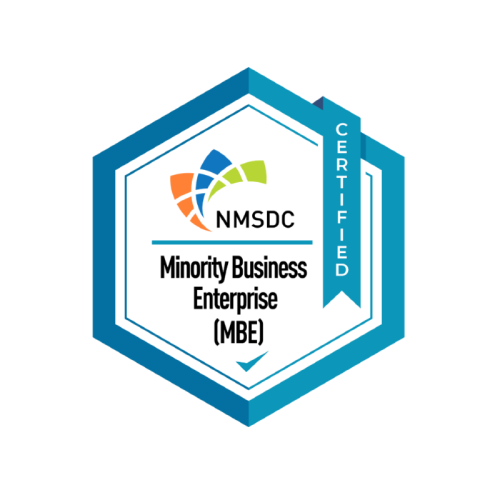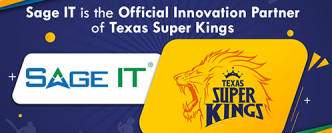Recruitment Process Outsourcing (RPO) is a strategic approach adopted by organizations to address their talent acquisition needs. In this process, companies partner with third-party specialists who are responsible for managing all or part of their recruitment operations. By outsourcing these activities, businesses can optimize resources, reduce costs, and focus on their core competencies.
RPO providers are an extension of the company’s human resources department, working closely with the employer to design and implement hiring strategies that align with their goals. These specialists are well-versed in every aspect of talent acquisition, from candidate sourcing to final selection, and they tailor their services to meet the unique needs of each organization. This level of expertise enables companies to scale their recruitment processes as required, maintaining a competitive edge in attracting the best talent in the market.
In a constantly evolving business landscape, Recruitment Process Outsourcing offers a valuable solution for companies seeking to improve their talent acquisition efforts. By entrusting this critical function to experienced professionals, organizations can maximize efficiency, enhance candidate quality, and ultimately drive the success and growth of their business.
Understanding Recruitment Process Outsourcing (RPO)
Recruitment Process Outsourcing (RPO) is an effective organizational strategy wherein a business delegates partial or complete recruitment processes to an external service provider. By leveraging RPO, companies can optimize their hiring procedures, making them more efficient and cost-effective. This outsourcing model offers several advantages, such as scalability, flexibility, and access to specialized recruitment knowledge.
One of the primary benefits of RPO is its scalable model. As the hiring demands of a business change, so can the resources allocated by the RPO provider. This flexibility allows organizations to meet fluctuating staffing requirements without constantly adjusting their recruitment budget.
RPO providers also bring expertise in various aspects of talent acquisition. They utilize cutting-edge technology and market intelligence to identify and engage top candidates quickly. This ensures that companies can remain competitive in the constantly evolving job market. RPO providers employ a combination of tools and techniques, including:
- Applicant Tracking Systems (ATS)
- Job posting and promotion platforms
- Candidate sourcing techniques
- Pre-employment assessments
- Predictive talent analytics
By integrating these technologies effectively, RPO providers can streamline and enhance the recruitment process for their clients.
Another key factor in using RPO is the potential for cost savings. Organizations that outsource their recruitment can often reduce expenses associated with hiring and onboarding new staff. This can include savings on advertising, pre-employment checks, and minimizing time-to-fill, resulting in reduced recruitment costs and increased return on investment.
Recruitment Process Outsourcing (RPO) is a valuable approach for businesses looking to optimize their talent acquisition processes. By partnering with a specialized RPO provider, companies can leverage technology, market insights, and professional expertise to meet staffing demands efficiently and cost-effectively. This strategy can ultimately lead to a more agile and successful business in today’s competitive market.
Types of RPO Models
Full RPO
Full RPO is a comprehensive outsourcing model where a company transfers its entire recruitment process to an external provider. This type of RPO is suitable for organizations expanding rapidly, as it helps them manage high-volume recruitment needs seamlessly. The external provider takes care of all aspects of recruitment, including job postings, candidate sourcing, interviews, hiring, and onboarding.
On-demand RPO
On-demand RPO is a flexible model, where a company engages an RPO provider whenever they have specific hiring needs. Unlike Full RPO, this model caters to temporary or short-term hiring requirements, enabling companies to scale their recruitment efforts up or down on an as-needed basis. Ideal for seasonal or project-based hiring, it allows organizations to maintain control over the recruitment process and vary their involvement with the RPO provider.
Project RPO
Project RPO is similar to on-demand RPO, but it is focused on meeting recruitment goals for a particular project or business function. In this model, the RPO provider is responsible for recruiting talent for a specific project, working closely with the company’s project team and HR professionals. This model is useful for companies that need to hire talent quickly for large-scale projects or initiatives with defined durations.
Hybrid RPO
Hybrid RPO is a combination of the Full RPO and On-demand RPO models. In this model, the RPO provider manages certain aspects of the recruitment process, while the company maintains control over others. For example, an organization might outsource bulk hiring to the RPO provider while retaining control of executive-level recruitment. This model offers flexibility in the outsourcing arrangement and is ideal for companies seeking a tailored approach to recruitment.
Function-based RPO
Function-based RPO targets a specific business function or department, allowing organizations to optimize their recruitment efforts for specialized roles. Commonly used to recruit niche talent, this model enables companies to leverage the RPO provider’s expertise and networks, ensuring a more effective recruitment process. Function-based RPO is suited to companies that have high demand for specialized skill sets within particular departments.
Overall, choosing the right RPO model depends on an organization’s hiring needs, budget, and recruitment objectives. Each model offers different levels of support and control over the recruitment process, making them suitable for various business demands.
Role of Technology in RPO
Technology plays a crucial role in the evolution and efficiency of Recruitment Process Outsourcing (RPO). It streamlines various aspects of the recruitment process, such as sourcing, screening, and managing candidates, while also enhancing the overall experience for both employers and job seekers. The following paragraphs highlight some of the key technologies utilized in RPO.
Applicant Tracking System (ATS): An ATS is a form of recruitment technology that automates the tracking and organization of candidate applications. It serves as a centralized database, storing resumes and maintaining records of the application process for each candidate. RPO providers use ATS to efficiently filter and prioritize candidates based on the specific requirements of their clients.
Predictive Talent Analytics: Predictive analytics is a powerful tool in RPO, as it utilizes data to forecast the success and fit of potential candidates. It enables recruitment professionals to identify patterns in the candidate pool and make informed decisions on which applicants are most likely to excel in a given role. By leveraging data-driven insights, RPO providers can improve the overall quality of their services, ensuring that their clients receive the best possible talent.
- Social Media: With the majority of job seekers actively using social media platforms, RPO providers have recognized the potential of leveraging these networks to source and engage prospective candidates. Through tactics such as targeted job advertisements and employer branding campaigns, RPO providers can efficiently connect with candidates in a more personalized and effective manner.
In addition to the technologies mentioned above, the RPO industry continues to explore and adopt new innovations aimed at further enhancing the recruitment process. Integrating advanced technologies like artificial intelligence (AI), natural language processing, and machine learning ensures that RPO providers can maintain their competitive edge and consistently deliver top-quality candidates to their clients.
Benefits and Drawbacks of RPO
Benefits:
- Cost Savings: RPO helps businesses lower their recruitment costs by streamlining the hiring process and reducing the expenses related to advertising, job boards, and other traditional means of recruitment.
- Scalability and Flexibility: RPO can be tailored to match the changing needs of a company. It provides the ability to quickly increase or decrease recruitment efforts depending on the current business requirements.
- Efficiency: RPO providers utilize best practices and innovative technology to stay ahead of the competition. This enables them to find high-quality candidates quickly and efficiently, leading to shorter time-to-hire and better overall performance.
- Compliance: RPO providers are often experts in managing employment regulations and compliance requirements. By outsourcing recruitment, businesses can minimize the risk of non-compliance in a constantly evolving regulatory landscape.
- Agility: RPO allows companies to quickly adapt to market changes or shifts in business strategy. For instance, if there’s a sudden spike in demand for a particular job profile, RPO providers can respond rapidly by sourcing numerous qualified candidates in a short period.
- Reporting: RPO providers typically offer comprehensive reporting and analytics. These data-driven insights can help businesses make informed decisions and improve their overall recruitment strategy.
Drawbacks:
- Loss of Control: Outsourcing recruitment may lead to a loss of control over the hiring process, which can be a concern for some businesses. It’s important to establish clear communication channels and expectations before entering into an RPO partnership.
- Potential Integration Challenges: Integrating an RPO provider’s system and processes with existing technology and workflows may sometimes pose challenges, potentially requiring changes to internal processes.
- Long-Term Commitment: RPO contracts may require a long-term commitment, which might not be suitable for every business. Companies should weigh the long-term benefits against the potential drawbacks before signing a contract with an RPO provider.
- Possibility of Misaligned Interests: While RPO providers aim to align their goals with those of the client, there may be times when their interests might not match. Ensuring that the RPO provider you choose has a similar operational philosophy and a strong track record is crucial for a successful partnership.
Key Players in RPO
Recruitment Process Outsourcing (RPO) is a strategic approach where companies transfer parts or the entirety of their recruitment processes to specialized third-party providers. There are several key players involved in the RPO process, each playing a specific role in the hiring process. These key players include the RPO provider, companies, recruiters, HR teams, hiring managers, and staffing companies.
RPO Providers: These are specialized third-party companies that manage the entire recruitment process on behalf of their clients. They bring expertise, resources, and technology solutions to the table, helping organizations streamline their recruitment efforts, improve the quality of hires, and control costs.
Companies: The organizations that utilize RPO services to optimize their recruitment processes. They work closely with RPO providers to establish and implement a customized recruitment strategy designed to meet their unique hiring needs and business objectives.
Recruiters: In-house or external recruiters can be part of the RPO process. The RPO provider might also have their own team of recruiters who work exclusively on specific client accounts. Their primary responsibility is to identify, engage, and evaluate potential candidates for job vacancies.
HR Teams: The human resources department within the hiring organization plays a vital role in the RPO model. They collaborate with RPO providers, ensure compliance with applicable laws and regulations, and handle employee onboarding and orientation.
Hiring Managers: These individuals are responsible for defining job requirements, selecting candidates for interviews, and making final hiring decisions. Hiring managers work closely with RPO providers and in-house HR teams to ensure the right candidates are hired for open positions within their departments.
RPO Recruiters: These professionals are employed by the RPO providers to manage the recruitment process for their clients. They often specialize in specific industries or skill sets, allowing them to more effectively source, assess, and engage top talent.
Staffing Companies: In some cases, RPO providers may partner with staffing companies to help fill temporary or contract positions. These partnerships can expand the available talent pool and provide additional resources to support the recruitment process.
The successful implementation of Recruitment Process Outsourcing relies on the seamless collaboration between all the key players in the process. Each entity plays a crucial role in streamlining talent acquisition, ensuring that skilled candidates are effectively matched with open positions within the organizations they serve, ultimately achieving hiring success.
Selection and Implementation of an RPO Strategy
The selection and implementation of an RPO strategy is a crucial decision for businesses that aim to optimize their recruitment processes. An effective RPO strategy takes into account several factors, including the alignment of the RPO provider with the company’s goals, an integrated approach to talent acquisition, and the agility to adapt to changing business needs.
To begin the RPO selection process, companies must first clearly define their recruitment objectives and requirements. This may involve assessing current challenges in talent acquisition, such as time-to-hire, cost-per-hire, and talent quality. With these goals in mind, businesses can evaluate various RPO providers based on their expertise, industry experience, and technological capabilities.
When evaluating RPO providers, organizations should ensure that their chosen partner is aligned with the company’s mission, values, and culture. This alignment is crucial for successful long-term collaboration between the company and the RPO provider. A few key criteria to consider during the selection process include:
- Provider’s track record: Assess the RPO provider’s prior success in delivering results for similar organizations and industries.
- Service offerings: Determine whether the RPO provider offers customized and flexible solutions to meet the company’s unique talent acquisition needs.
- Cost and value: Analyze the provider’s cost structure and the potential return on investment (ROI) for the organization.
- Technology and innovation: Evaluate the provider’s use of advanced recruitment technology, analytics, and digital tools to support agile and efficient talent acquisition.
Upon selecting an RPO provider, the next step is to implement an integrated RPO strategy within the organization. An effective implementation plan should involve regular communication, setting clear expectations, and establishing performance benchmarks. To ensure a smooth transition, both the company and the RPO provider should jointly develop key performance indicators (KPIs) to measure the success of the partnership.
The RPO strategy should also be agile, with the ability to quickly adapt to changing staffing demands and market conditions. As companies grow and evolve, so too should their RPO engagement. Regularly reviewing and adjusting the RPO strategy in response to company needs will help maintain a successful long-term partnership with the selected provider.
A well-executed RPO strategy can greatly benefit an organization’s talent acquisition efforts. By carefully selecting and implementing the right RPO provider, companies can achieve increased efficiency, cost savings, and improved talent quality.
Role of RPO in Talent Acquisition
Recruitment Process Outsourcing (RPO) plays a significant part in talent acquisition by allowing organizations to leverage external expertise for identifying, attracting, and onboarding quality talent. With the assistance of RPO providers, companies can focus on their core business operations while making sure they acquire the best employees for their organization.
Expertise: RPO providers specialize in talent acquisition, and their experience in the field enables them to understand specific industry needs. They have comprehensive knowledge of recruitment strategies and methods, ensuring they can identify the right talent with the required skills for the company.
Networks: RPO providers have established networks and relationships with various talent pools, ranging from job boards to professional associations. This expansive reach allows them to efficiently access potential candidates for their client companies and leverage their networks to source a diverse range of candidates, increasing the likelihood of finding quality talent.
Sourcing candidates: The RPO provider is responsible for seeking out and screening potential candidates, saving the company considerable time and effort. They utilize a variety of methods, such as targeted advertising and social media channels, to find and attract potential candidates to the company’s open positions.
Talent pools: RPO providers maintain and develop talent pools, a collection of pre-screened candidate profiles relevant to the client’s industry or business. The ability to create customized talent pools ensures quick access to the best-qualified candidates, reducing the time spent trying to fill open positions.
Onboarding: RPO providers manage the onboarding process for the new employees they help hire. This includes tasks like background checks, employment contracts, and orientation, ensuring a smooth transition into their new position.
Quality talent: RPO specialists employ various tools, technologies, and methodologies to evaluate candidates, matching them based on their skills, qualifications, and organizational fit. Moreover, they perform assessments to ensure only the most qualified candidates progress in the hiring process, ensuring the company’s talent pool is strong and resilient.
By leveraging the capabilities of RPO providers, organizations can enhance their talent acquisition process, ensuring they attract and hire the right talent. With the expertise, networks, and processes that RPO providers offer, companies can significantly streamline their recruitment, resulting in a higher likelihood of acquiring high-quality employees for their organization.
RPO and Company Culture
Recruitment Process Outsourcing (RPO) is a strategic approach that involves transferring all or part of a company’s recruitment processes to an external service provider. When implemented effectively, RPO can have a positive impact on a company’s culture, diversity, equity, and inclusion.
One notable benefit of RPO is its ability to promote diversity and inclusion within an organization. By partnering with an RPO provider with a strong focus on diversity and inclusion, companies can access a broader talent pool and ensure fair recruitment practices. This leads to the formation of a more diverse workforce, which has been proven to enhance creativity, innovation, and overall success. Moreover, a diverse workforce can strengthen a company’s reputation and appeal to an even wider range of potential employees and customers.
Another advantage of RPO is its emphasis on cultural alignment. RPO providers work closely with companies to understand their unique values, mission, and strategic goals. This enables them to identify candidates that not only possess the appropriate skills and qualifications but also align with the company’s culture. As a result, companies can gradually build a cohesive, engaged, and committed workforce that strengthens the company culture over time.
Equity plays a vital role in creating an environment where employees feel valued and fairly treated. An RPO provider, with its expertise and impartial perspective, can assess and address any existing biases in the recruitment process. For instance, RPO providers can help develop more objective and data-driven hiring methods, ensuring that all candidates are assessed equitably and given equal opportunity for employment.
In terms of inclusion, an RPO provider can assist in devising and implementing strategies that foster a sense of belonging among the workforce. By prioritizing inclusive practices, such as flexible work arrangements and employee resource groups, RPO providers can help create a supportive atmosphere that attracts and retains diverse talent.
RPO has the potential to significantly impact a company’s culture, diversity, equity, and inclusion. By partnering with an RPO provider, organizations can reap the benefits of a more diverse, culturally aligned, and inclusive workforce, which ultimately contributes to their overall success.
Impact of RPO on Employer Branding and Candidate Experience
Recruitment Process Outsourcing (RPO) has a significant impact on employer branding and candidate experience. By entrusting the recruitment process to a specialized third-party provider, organizations can enhance their reputation in the job market and improve the experience for potential candidates.
Employer Branding is essential as it helps attract top talent to an organization by showcasing what makes the company unique and appealing. RPO providers have expertise in marketing and advertising, ensuring that their clients’ job postings convey a positive, consistent image of the organization. Furthermore, RPO providers can assist with crafting job descriptions that accurately represent the roles and expectations for potential employees, making it easier for job candidates to understand the requirements and responsibilities of each position.
Candidate Experience plays a crucial role in determining whether job candidates will accept offers from an organization. A poor experience can lead to negative word-of-mouth, impacting the company’s ability to attract and retain skilled talent. RPO providers specialize in engaging and communicating with candidates, ensuring a smooth application and interview process for all parties involved. They can also help tailor the content of job postings so that they reflect the ideal candidate profile and make the selection process more effective.
RPO can also improve the candidate experience by:
- Streamlining application processes, making it easy for candidates to apply
- Ensuring prompt communication with applicants, enabling them to stay informed about their application status
- Providing detailed feedback to unsuccessful candidates, helping them understand the reasons behind the decision
Overall, RPO can significantly influence an organization’s employer branding and candidate experience, thus promoting a positive company image and ultimately enabling the organization to attract and retain highly skilled talent.
RPO in Different Industry Contexts
Recruitment Process Outsourcing (RPO) is a strategic function employed across industries to streamline and optimize talent acquisition. In various market scenarios, companies turn to RPO providers to reduce costs, minimize internal recruitment processes, and access specialized recruitment expertise. In this section, we explore how RPO is applied in different industry contexts and its impact on business process outsourcing (BPO) and small businesses.
Manufacturing: In the manufacturing industry, the need for skilled labor and niche technical expertise is crucial. RPO providers can help identify, screen, and place expert candidates to keep production lines running efficiently, ensuring timely product delivery and high customer satisfaction.
Healthcare: The healthcare industry requires staffing for a wide range of roles, from medical practitioners to administrative personnel. RPO solutions can fill these positions by tapping into an extensive network of professionals while also ensuring candidates meet industry-specific compliance requirements.
Technology: The rapid evolution of technology demands a workforce with diverse skills and up-to-date knowledge in software development, cybersecurity, and artificial intelligence, among others. RPO firms have access to talent pools that can fulfill these industry-specific needs by leveraging their expertise in hiring top-notch professionals.
Finance: Financial institutions benefit from RPO services to recruit staff for various roles such as risk management, compliance, investment banking, and fintech innovation. RPO providers can identify candidates who possess the necessary financial acumen and skillsets for these specialized roles.
In the context of business process outsourcing (BPO), RPO plays a vital role in ensuring seamless operation. BPO services often require professionals with specialized skills in areas like customer support, technical helpdesk, and financial services. The demands of these roles can be met by utilizing RPO services, which cater to the specific recruitment needs of the BPO industry.
Small businesses can also benefit from RPO implementation. Limited resources and budgetary constraints might prevent small businesses from having dedicated in-house recruitment teams. In such cases, RPO providers offer scalable solutions, allowing these organizations to access an expansive pool of talent without incurring additional costs.
From diverse industries to small businesses, RPO solutions effectively address varying recruitment needs. Adopting RPO is a strategic approach to talent acquisition, ensuring that organizations across sectors remain competitive through the efficient placement of skilled professionals.
Challenges in RPO
Recruitment Process Outsourcing (RPO) is an effective strategy for organizations looking to streamline their recruitment process and find the best talent. However, like any approach, it comes with its own set of challenges. In this section, we will discuss some of the primary obstacles faced by companies and RPO providers in this evolving business environment.
One major challenge in RPO is employee turnover. While RPO can help in hiring well-suited candidates, retaining them is another challenge altogether. High turnover rates can result in increased recruitment costs and loss of organizational knowledge. Therefore, RPO providers need to focus on strategies that not only attract potential hires but also ensure long-term employee satisfaction and loyalty.
Finding hard-to-find candidates is another hurdle in the RPO landscape. Often, organizations require niche skills that are in high demand but low supply. In a tight labor market, locating and recruiting these specialized candidates can be a daunting task. RPO providers must be adept at leveraging a diverse array of sourcing channels, such as social media, referrals, and professional networks, to discover top talent with the necessary skill set.
In a tight labor market, competition for top talent is fierce. With multiple organizations vying for the same pool of qualified candidates, an RPO provider must be able to differentiate its client from the competition. Crafting an attractive employer brand and effectively communicating the unique benefits of the organization can help attract the best candidates and keep them engaged throughout the hiring process.
Lastly, aligning the RPO service with business needs can be challenging. Companies have diverse recruitment objectives, budget constraints, and hiring timelines. It is essential for RPO providers to develop a tailored solution that caters to the specific needs of the client while adhering to their unique organizational culture. This requires continuous communication, transparency, and flexibility to adapt the process as per the evolving needs of the business.
Organizations and RPO providers need to navigate various challenges, such as employee turnover, hard-to-find candidates, tight labor market, and catering to specific business needs. By addressing these obstacles effectively, companies can better harness the power of RPO to optimize their recruitment process and secure the best talent in the market.
Role of RPO in Managing Hiring Demand
Recruitment Process Outsourcing (RPO) is a strategic approach where an organization partners with a third-party specialist to manage some or all aspects of their recruitment process. The primary role of RPO is to streamline the hiring process, improve the quality of hires, and manage fluctuations in hiring demand. This section discusses how RPO helps in managing hiring demand through flexible models such as on-demand and project RPO.
On-demand RPO model offers flexibility for organizations experiencing variations in hiring demand. It allows companies to scale their recruitment resources according to their needs. When hiring demand increases, an organization can quickly tap into the expertise of their RPO partner to fill the open positions. Similarly, when hiring demand decreases, the business can pause or reduce the level of their RPO involvement. This model helps companies to maintain a consistent hiring process without the need for costly in-house recruiters or agencies.
Project RPO is another approach that focuses on delivering recruitment solutions for specific projects or time-bound initiatives. This RPO model is well-suited for organizations that have a defined set of hiring requirements, such as launching a new product or expanding to a new location. Project RPO provides a customized solution tailored to the project’s specific needs. The RPO provider works closely with the company to deliver skilled talent within the required timeframe.
Some key benefits of utilizing RPO for managing hiring demand include:
- Cost-effectiveness: By outsourcing the recruitment process, companies can save on direct and indirect costs associated with hiring and onboarding new employees.
- Scalability: RPO enables organizations to easily scale their recruitment efforts to meet fluctuations in hiring demand.
- Efficiency: RPO providers leverage effective recruitment techniques and technology to streamline the hiring process, reducing the time needed to fill open positions.
- Quality of hires: RPO specialists have extensive knowledge of industry trends and best practices, ensuring that companies acquire top talent.
RPO plays a crucial role in managing hiring demand by offering flexible models like on-demand and project RPO. Organizations leveraging these models can effectively address fluctuations in their talent needs, achieving better control over costs and improving the overall efficiency and quality of their recruitment processes.
Key Metrics in RPO
Recruitment Process Outsourcing (RPO) involves transferring all or part of an organization’s recruitment process to a third-party specialist. This approach helps organizations scale resources to meet hiring demands without increasing budgets for in-house recruiters or recruitment agencies. To measure the effectiveness of RPO solutions, it’s essential to track relevant Key Performance Indicators (KPIs). In this section, we will discuss some of the key metrics used to evaluate RPO success.
Cost per Hire: An essential metric in RPO, cost per hire helps assess the financial aspects of the recruitment process. This includes the total costs associated with advertising, interviewing, screening, onboarding, and training. Cost per hire helps organizations determine the return on investment (ROI) and budget management when using RPO solutions. Lowering the cost per hire, while maintaining quality hires, is a desirable outcome in RPO partnerships.
Time to Hire: Evaluating the time it takes to fill a position is crucial for assessing the efficiency of an RPO provider. Time to hire measures the duration between the job opening and the candidate’s acceptance of the offer. Faster hiring times contribute to overall business efficiencies, reduced vacancy costs, and better talent acquisition.
Candidate Pipelines: Creating and maintaining a robust pipeline of pre-qualified candidates is vital in RPO engagements. This element saves time in filling future positions and helps ensure that the company has access to top talent when required. Tracking this metric will provide insights into the RPO provider’s ability to develop strong talent pipelines for the organization.
Talent Analytics: RPO providers often use advanced analytics to uncover patterns and trends in the talent market. These insights can cover aspects such as skill availability, compensation benchmarking, and competitor intelligence. Assessing the quality and depth of these analytics will help organizations understand the RPO provider’s ability to make informed hiring decisions, ultimately improving the quality of candidates sourced.
Market Intelligence: In addition to talent analytics, organizations should also evaluate the RPO provider’s market intelligence capabilities. This includes understanding industry trends, labor laws, and regulations that could impact the hiring process. Having access to accurate and up-to-date market intelligence can enhance the overall recruitment strategy, ensuring compliance and staying competitive in the job market.
Tracking key metrics like cost per hire, time to hire, candidate pipelines, talent analytics, and market intelligence can significantly contribute to the ongoing success of an RPO partnership. By ensuring the RPO provider meets or exceeds expectations in these areas, organizations can obtain better talent while optimizing recruitment efficiency and costs.
How does RPO differ from traditional recruitment?
Recruitment Process Outsourcing (RPO) is a systematic approach where a business delegates part or all of its recruitment function to an external provider who specializes in recruiting services. Traditional recruitment, on the other hand, refers to organizations managing the recruitment process internally, typically through an in-house HR team.
What are the key benefits of RPO for businesses?
The key benefits of using RPO for businesses include reduced cost and hiring time, access to broader talent networks, expertise in specific industries and roles, and improved overall efficiency of the recruitment process. RPO providers also help businesses scale their recruitment process according to the fluctuation in hiring demands.
In which industries is RPO most commonly used?
RPO is commonly used across a wide range of industries, including but not limited to technology, healthcare, finance, retail, and manufacturing. Due to the flexibility and customizable nature of RPO solutions, businesses of all sizes and industries can benefit from RPO services.
What services are typically included in an RPO solution?
RPO solutions may cover the entire recruitment process, or specific parts based on the client’s needs. Some of the services typically included in an RPO solution are candidate sourcing and screening, interview scheduling, onboarding, employer branding, and ongoing talent management.
What is the RPO provider’s role in the hiring process?
The RPO provider’s role in the hiring process can vary depending on the level of service requested by the client. In general, RPO providers work closely with the client’s HR team to determine hiring needs, develop and implement an appropriate recruitment strategy, and provide timely feedback on the progress of the recruitment process. This collaboration helps ensure that the best talent is sourced and hired efficiently.
How do RPO and BPO differ in the context of recruitment?
RPO (Recruitment Process Outsourcing) is a specialized service that deals specifically with the recruitment function of an organization. BPO (Business Process Outsourcing) is a broader term that refers to the outsourcing of any business process to a third-party provider, which might include recruitment, among other functions. RPO providers focus on understanding and addressing the client’s hiring needs, while BPO providers may handle a range of functions beyond recruitment, depending on the client’s requirements.









